- Now Playing
- Airing Today
- Popular People
- Discussions
- Leaderboard
- Alternative Titles
- Cast & Crew
- Release Dates
- Translations
- Backdrops 16
- Content Issues 0


The King's Speech (2010)
← back to main.

King George VI

Lionel Logue

Queen Elizabeth

King Edward VIII

Winston Churchill

King George V

Myrtle Logue

Archbishop Cosmo Lang
Princess Elizabeth

Princess Margaret

Private Secretary

Wallis Simpson

BBC Radio Announcer

Robert Wood

BBC Technician

Dr. Blandine Bentham

Laurie Logue

Valentine Logue
Anthony Logue

Theatre Director

Lord Wigram

Lord Dawson

Duke of Kent

Duke of Gloucester

Boy in Regent's Park

Stanley Baldwin
Neville Chamberlain
Royal Marine (uncredited)

Mrs. Cooper - Vocalist
Binky (uncredited)

Infantry (uncredited)
Policeman (uncredited)
BBC Technician / Soldier (uncredited)
Julia Castle
Art Department Coordinator
Leon McCarthy
Art Direction
Alan Chesters
Construction Manager
Camilla Stephenson
Location Scout
Philip Lobban

Eve Stewart
Production Design
Property Master
Set Decoration
Douglas Ingram
Storyboard Artist
David Hindle
Supervising Art Director

Danny Cohen
Camera Operator, Director of Photography
Martin Kenzie
Second Unit Director of Photography

Zac Nicholson
Steadicam Operator
Laurie Sparham
Still Photographer
Costume & Makeup
Sally Turner
Assistant Costume Designer

Jenny Beavan
Costume Design
Marco Scotti
Costume Supervisor
Frances Hannon
Hair Designer
Carmel Jackson
Hairstylist
Nana Fischer
Christine Whitney
Makeup Artist
Kristyan Mallett
Prosthetic Supervisor

Ludwig van Beethoven
Additional Music
Nick Jeffries
Viral Thakkar
CG Supervisor
Scarlett Mackmin
Choreographer
Dialect Coach
Edwin Morris Hooper
In Memory Of
Post Production Supervisor
Dennis Davidson
Public Relations
James Davis III
Special Effects

Steve Morphew
Teresa Mahoney
Albert Martínez Martín
Andrew Mackie
Christos Michaels
Richard Payten
Carl Isherwood
Transportation Captain
Simon Jones
Unit Publicist
Collette Nunes
Visual Effects Editor
Migs Rustia
Paul Stemmer

Martin Harrison
First Assistant Director
Cathy Doubleday
Script Supervisor
Chris Stoaling
Second Assistant Director
Jeff Smithwick
Color Timer
Gareth Spensley

Tariq Anwar
Paul McGeachan

Deepak Sikka
Co-Executive Producer
Co-Producer
Jeff Maynard
Executive In Charge Of Post Production

Bob Weinstein
Executive Producer
Geoffrey Rush

Harvey Weinstein
Mark Foligno
Peter Heslop
Line Producer
David Broder
Location Manager
Jamie Lengyel

Emile Sherman
Gareth Unwin

Iain Canning
Marilyn Goldsworthy
Production Accountant
Fiona Garland
Production Coordinator
Erica Bensly
Production Manager
Forbes Noonan
ADR & Dubbing
Philip Clements
Assistant Sound Editor
Andre Schmidt
Dialogue Editor
Matthew Skelding
Andie Derrick

Peter Burgis

Peter Clarke
Music Editor
Maggie Rodford
Music Supervisor
Jean-Pascal Beintus
Orchestrator
Nicolas Charron
Sylvain Morizet

Alexandre Desplat
Original Music Composer
John Midgley
Production Sound Mixer
Catherine Hodgson
Sound Effects Editor
Martin Jensen
Sound Re-Recording Mixer
Paul Hamblin
Gerard McCann
Supervising Sound Editor
Lee Walpole
Visual Effects
Cyntia Büll
Digital Compositors
Hanuman Patel
Ilamuruguselvan
Kelly Fischer
Special Effects Supervisor
Danny S. Kim
Charlotte Collings
Visual Effects Coordinator
Melinka Thompson-Godoy
Visual Effects Producer
Thomas M. Horton
Visual Effects Supervisor
David Seidler
You need to be logged in to continue. Click here to login or here to sign up.
Can't find a movie or TV show? Login to create it.
On media pages
On tv season pages, on tv episode pages, on all image pages, on all edit pages, on discussion pages.
Want to rate or add this item to a list?
Not a member?
Sign up and join the community
Join or Sign In
Sign in to customize your TV listings
By joining TV Guide, you agree to our Terms of Use and acknowledge the data practices in our Privacy Policy .
- TV Listings
- Cast & Crew
The King's Speech - Full Cast & Crew
- 1 hr 58 mins
- Watchlist Where to Watch
Tom Hooper's Oscar-winning period drama, based on real events, starring Colin Firth, Geoffrey Rush and Helena Bonham Carter. George VI, the future King of England, struggles to conquer a crippling stutter that is brought on by a fear of public speaking. Things begin to improve when his wife takes him to see unorthodox Australian speech therapist Lionel Logue. As their long association unfolds, the men find a common bond that leads to friendship.
Screenwriter
Choreographer.
Log in or sign up for Rotten Tomatoes
Trouble logging in?
By continuing, you agree to the Privacy Policy and the Terms and Policies , and to receive email from the Fandango Media Brands .
By creating an account, you agree to the Privacy Policy and the Terms and Policies , and to receive email from Rotten Tomatoes and to receive email from the Fandango Media Brands .
By creating an account, you agree to the Privacy Policy and the Terms and Policies , and to receive email from Rotten Tomatoes.
Email not verified
Let's keep in touch.

Sign up for the Rotten Tomatoes newsletter to get weekly updates on:
- Upcoming Movies and TV shows
- Trivia & Rotten Tomatoes Podcast
- Media News + More
By clicking "Sign Me Up," you are agreeing to receive occasional emails and communications from Fandango Media (Fandango, Vudu, and Rotten Tomatoes) and consenting to Fandango's Privacy Policy and Terms and Policies . Please allow 10 business days for your account to reflect your preferences.
OK, got it!
Movies / TV
No results found.
- What's the Tomatometer®?
- Login/signup
Movies in theaters
- Opening this week
- Top box office
- Coming soon to theaters
- Certified fresh movies
Movies at home
- Fandango at Home
- Netflix streaming
- Prime Video
- Most popular streaming movies
- What to Watch New
Certified fresh picks
- Civil War Link to Civil War
- Monkey Man Link to Monkey Man
- The First Omen Link to The First Omen
New TV Tonight
- The Sympathizer: Season 1
- Our Living World: Season 1
- Under the Bridge: Season 1
- The Spiderwick Chronicles: Season 1
- Conan O'Brien Must Go: Season 1
- Orlando Bloom: To the Edge: Season 1
- The Circle: Season 6
- Dinner with the Parents: Season 1
- Jane: Season 2
Most Popular TV on RT
- Fallout: Season 1
- Ripley: Season 1
- 3 Body Problem: Season 1
- Parasyte: The Grey: Season 1
- Shōgun: Season 1
- Sugar: Season 1
- We Were the Lucky Ones: Season 1
- Baby Reindeer: Season 1
- X-Men '97: Season 1
- A Gentleman in Moscow: Season 1
- Best TV Shows
- Most Popular TV
- TV & Streaming News
Certified fresh pick
- Fallout Link to Fallout
- All-Time Lists
- Binge Guide
- Comics on TV
- Five Favorite Films
- Video Interviews
- Weekend Box Office
- Weekly Ketchup
- What to Watch
Best Movies of 2024: Best New Movies to Watch Now
25 Most Popular TV Shows Right Now: What to Watch on Streaming
What to Watch: In Theaters and On Streaming
Awards Tour
Fallout : What It Gets Right, and What It Gets Wrong
CinemaCon 2024: Day 3 – Disney Previews Deadpool & Wolverine , Moana 2 , Alien: Romulus , and More
- Trending on RT
- Best TV 2024
- Play Movie Trivia
- CinemaCon 2024
- Popular Movies
The King's Speech
2010, History/Drama, 1h 58m
What to know
Critics Consensus
Colin Firth gives a masterful performance in The King's Speech , a predictable but stylishly produced and rousing period drama. Read critic reviews
You might also like
Where to watch the king's speech.
Watch The King's Speech with a subscription on Max, rent on Fandango at Home, Apple TV, Prime Video, or buy on Fandango at Home, Apple TV, Prime Video.
Rate And Review
Super Reviewer
Rate this movie
Oof, that was Rotten.
Meh, it passed the time.
It’s good – I’d recommend it.
So Fresh: Absolute Must See!
What did you think of the movie? (optional)
You're almost there! Just confirm how you got your ticket.
Step 2 of 2
How did you buy your ticket?
Let's get your review verified..
AMCTheatres.com or AMC App New
Cinemark Coming Soon
We won’t be able to verify your ticket today, but it’s great to know for the future.
Regal Coming Soon
Theater box office or somewhere else
By opting to have your ticket verified for this movie, you are allowing us to check the email address associated with your Rotten Tomatoes account against an email address associated with a Fandango ticket purchase for the same movie.
You're almost there! Just confirm how you got your ticket.
The king's speech photos.
England's Prince Albert (Colin Firth) must ascend the throne as King George VI, but he has a speech impediment. Knowing that the country needs her husband to be able to communicate effectively, Elizabeth (Helena Bonham Carter) hires Lionel Logue (Geoffrey Rush), an Australian actor and speech therapist, to help him overcome his stammer. An extraordinary friendship develops between the two men, as Logue uses unconventional means to teach the monarch how to speak with confidence.
Rating: R (Some Language)
Genre: History, Drama
Original Language: English
Director: Tom Hooper
Producer: Iain Canning , Emile Sherman , Gareth Unwin
Writer: David Seidler
Release Date (Theaters): Jan 28, 2011 wide
Release Date (Streaming): Apr 1, 2017
Box Office (Gross USA): $138.8M
Runtime: 1h 58m
Distributor: Weinstein Co.
Production Co: See-Saw Films, Bedlam Pictures
Cast & Crew
Colin Firth
King George VI
Geoffrey Rush
Lionel Logue
Helena Bonham Carter
Queen Elizabeth
King Edward VIII
Timothy Spall
Winston Churchill
Derek Jacobi
Archbishop Cosmo Lang
Jennifer Ehle
Myrtle Logue
Anthony Andrews
Stanley Baldwin
Claire Bloom
Wallis Simpson
Michael Gambon
King George V
David Seidler
Screenwriter
Executive Producer
Mark Foligno
Harvey Weinstein
Bob Weinstein
Iain Canning
Emile Sherman
Gareth Unwin
Danny Cohen
Cinematographer
Tariq Anwar
Film Editing
Eve Stewart
Production Design
Alexandre Desplat
Original Music
Leon McCarthy
Art Director
Set Decoration
Jenny Beavan
Costume Design
News & Interviews for The King's Speech
RT on DVD & Blu-Ray: The King’s Speech and Rabbit Hole
Best of the Best Pictures!
RT’s Oscar Picks
Critic Reviews for The King's Speech
Audience reviews for the king's speech.
A true masterwork of modern cinema laced with exceptional acting and a story which makes for a nearly perfect period piece. One of the best films of the 21st Century by far.

The Duke Of York hires an unconventional speech therapist when faced with Royal duties in the burgeoning media age to help him with a stammer that prevents his public speaking. The premise behind The King's Speech is a rather dry one and the trailers themselves make it seem to be a cross between The Madness Of King George and Pygmalion, but thanks to some winning performances and an interesting script portraying a behind the scenes window onto recent history it transcends the traditional comedy of manners formula that nearly all British films seem obliged to follow. Colin Firth's portrayal of a man thrust into the public eye by events beyond his control is sublime and it's fascinating to see a snapshot of the man behind a public face completely controlled by propriety and social convention. There's a real warmth in his unlikely friendship with a brewer's son from Australia and the gentle humour and subtle direction makes a very refreshing change from the ADHD firework displays that seem to make up the vast majority of modern cinema. Maybe not the masterpiece its multi-award winning reputation suggests, but a quality cast and sensitive storytelling make for a fine lightly comic and insightful historical character study.
Please spell me out the "clichéd" and "formulaic" elements in The King's Speech, because even if it is a doubtful Academy Awards conqueror, Tom Hooper built a proper historical account about the struggle of a man to become a symbol of national resistance in imminent war times that were about to shape the world. It has been accused of being "predictable" as well. Maybe that's because the story was based on true events? The art of cinema retelling true stories resides in the ability to properly, yet respectfully carry on the task of dramatization, one of the main successes of <i>The King's Speech</i>. I applaud the performances and the execution. Dialogue handling was impeccable, and the cinematography was worthy of a disciple of Carol Reed, capturing the size of the scenarios, the tension of the situations and the psychological difficulties faced by King George VI. I wonder, therefore, what would the opinion of the audiences be if this had been a film directed by Carol Reed in the 40s. Perhaps they would have been quicker to applaud. Do not let the debated Academy Awards be distractions to you. 78/100
It's the sign of a talented director that a bunch of scenes of people talking (or stammering) in rooms can look cinematic.
Movie & TV guides
Play Daily Tomato Movie Trivia
Discover What to Watch
Rotten Tomatoes Podcasts
- Skip to main content
- Keyboard shortcuts for audio player
Movie Interviews
Tom hooper: on directing 'the king's speech'.

In The King's Speech , Colin Firth plays King George VI, who was adored by his subjects for refusing to leave London during World War II bombing raids. He also suffered from a terrible stammer and hated speaking in public. Laurie Sparham via The Weinstein Co. hide caption
In The King's Speech , Colin Firth plays King George VI, who was adored by his subjects for refusing to leave London during World War II bombing raids. He also suffered from a terrible stammer and hated speaking in public.
This interview was originally broadcast on November 18, 2010. The King's Speech was recently nominated for 12 Academy Awards, including Best Picture and Best Director.
In 1925, Albert, Duke of York, began seeing a speech therapist to correct his pronounced speech impediment. Eleven years later, he reluctantly ascended to the British throne as King George VI, after his older brother Edward VIII abdicated to marry the American Wallis Simpson.
As the king, George VI was expected to frequently address his nation, both in person and on the radio. During these public speaking engagements, he continued to rely heavily on his speech therapist, Australian Lionel Logue, to make sure he didn't stammer.
King George VI's relationship with Logue is at the heart of director Tom Hooper's historical drama, The King's Speech . The film stars Colin Firth as King George VI and Geoffrey Rush as Logue, who developed his somewhat unorthodox way of treating speech impediments while treating shell-shocked soldiers in the years following World War I.
Related NPR Stories
Oscars 2011: the 83rd annual academy awards, oscars 2011: best picture cheat sheet, 'the king's speech' passes stutterers the mic, movie reviews, for a 'king's speech,' commoner helps find a voice.
"He basically taught himself through trial and error speech therapy and developed techniques in order to help these men," says Hooper. "Our film suggests that what he felt was that these young men had lost faith in their voice and he was giving them the right to be heard again — to talk about their trauma and to find their voice again."
Hooper tells Fresh Air 's Dave Davies that Logue's therapy techniques included asking his subjects personal questions about their childhoods and about traumatic moments in their lives, to see if there was a psychological reason for their stammers. King George VI, who was often neglected by his nannies and rarely saw his parents, worked with Logue on techniques to regain his own voice.
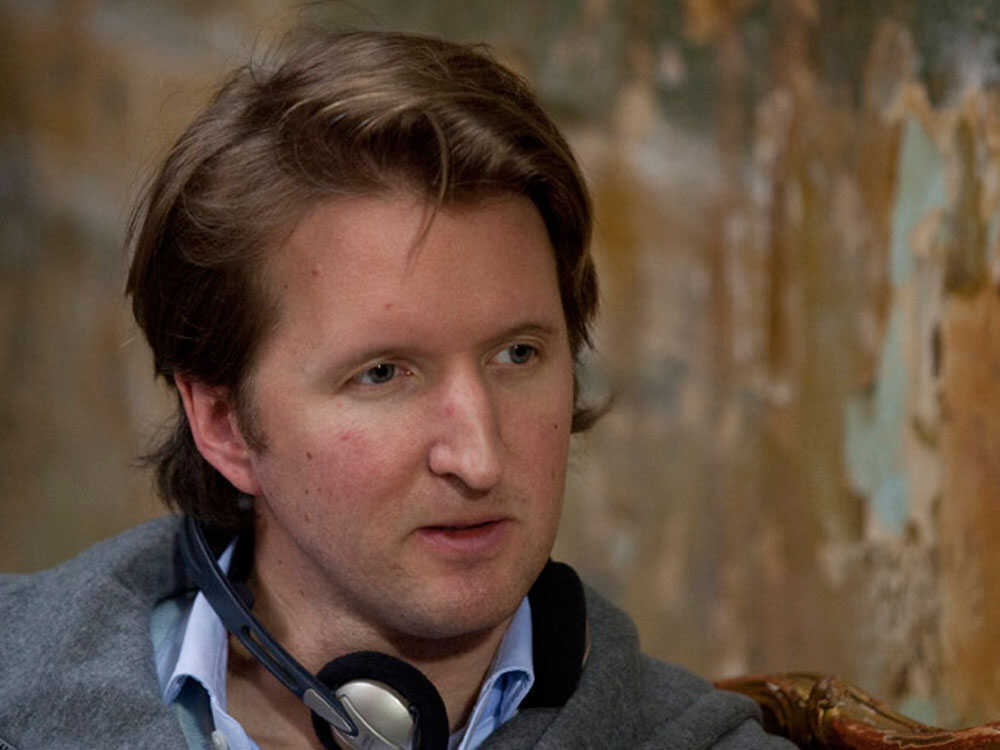
Tom Hooper directed BBC costume drama before making his feature film debut in 2004, when he directed Hilary Swank in Red Dust . Laurie Sparham via The Weinstein Co. hide caption
Tom Hooper directed BBC costume drama before making his feature film debut in 2004, when he directed Hilary Swank in Red Dust .
"What I learned about stammering was that, when as a young child you lose the confidence of anyone who wants to listen to you, you lose confidence in your voice and the right to speech," says Hooper. "And a lot of the therapy was saying, 'You have a right to be heard.' "
Hooper explains that for the film, both he and Firth watched hours of archival footage of King George, to develop the character.
"We watched a speech given in 1938 where the newsreel people cut from a close-up [of the king] to spectators in the crowd," says Hooper. "Whenever they come back in this profile close to the king, you just can see in his eyes — he just wants to get it right. That's all he wants to achieve. But he keeps getting caught in these horrible, painful silences in which he drowns and gathers his thoughts in silence. Colin and I both saw this and were extremely moved."
Hooper received Emmy Awards for Outstanding Directing for the HBO miniseries John Adams and Elizabeth I . His other films include Damned United and Red Dust .
Kings Speech
A restrained and mellow role
You get completely get caught up in Colin Firths character he manages to perfectly convey the frustration, if you had never seen him in anything else you could swear he actually had a stammer. The chemistry between Colin Firth and Geoffory rush is fantastic, you can really see why this was up for so many oscars. All the characters are unforgettable it already feels like an instant British classic Helena Bonham Carter plays the doting wife incredibly which makes a big change from her usual odd roles often in her husband films it was a refreshing change to see her in such a restrained and mellow role.
The screenplay, written by David Seidler is excellent. The dry British wit is hilarious. Tom Hooper (Elizabeth I) does a superb job directing this movie, and it is only rated 12a because of the swearing in the funny scene when Louge uses it to try and relax the king, it is still an incredibly feel good film. I should add that Helena Bonham-Carter is also spot-on as the haughty yet practical queen consort. Other more minor roles are effectively played (e.g., Winston Churchill, George V). The entire movie is a perfect blend of history, personal and familial drama, with broader themes of perseverance and overcoming adversity which give it a timeless application.
A acting achievement without like
If you are a film watcher you will no doubt be astonished by the convincing and enthralling performance. In other words, the character comes to life, and without as much as a flicker of criticism can be held as you simply forget time when told a story in this magical way, by inspiring individuals who completely capture the essence of the role they are playing, and of course also capture our full and undivided attention.
Born in an academic British family, son to a religion lecturer and a history lecturer who in turn were born from missionaries. The siblings of this fantastic actor are also in the same industry, and both Katie and Jonathan are similarly pursuing careers in the same field, and successfully so.
Having grown up acting, theatre and movies, the introduction to the scene was at an early age, and already in infant school the role of Jack Frost was played in a Christmas pantomime. Since then there has been a wide range of different education and involvement which has lead to the nomination for many great awards including winning the Oscar for best leading role for the film we love the most. And without a doubt, rightfully so, his acting in this commanding role is of no like, and you will have to look far and wide to find any performance in the cinematic world today which even comes close to matching.
Cast and Drain Unblocking in the Movie “The King’s Speech”
Have you ever been so engrossed in a movie that you forgot about the real world? That’s the magic of cinema. One such captivating film is “The King’s Speech,” a period drama that not only mesmerizes with its story but also offers intriguing insights into historical challenges and personal struggles. In this article, we delve into the world of “The King’s Speech” and explore the captivating cast, while drawing intriguing parallels between the characters and the process of drain unblocking.
1. Introduction
“The King’s Speech,” directed by Tom Hooper, is a historical drama that delves into the life of King George VI of Britain as he grapples with a debilitating speech impediment. Beyond its historical context, the movie weaves a tale of friendship, determination, and triumph over adversity.
2. The Plot Unblocked: Overcoming Communication Barriers
At its core, the movie explores King George VI’s struggle to overcome a severe stammer that undermines his ability to address the nation effectively. His journey toward finding his voice is not only a personal one but also a reflection of the broader theme of breaking barriers.
3. Unblocking the Characters: A Stellar Cast
3.1 a king in distress: king george vi (colin firth).
Colin Firth’s portrayal of King George VI is nothing short of remarkable. He captures the frustration and vulnerability of a monarch grappling with a speech impediment, humanizing the regal figure.
3.2 Unconventional Support: Lionel Logue (Geoffrey Rush)
Geoffrey Rush shines as Lionel Logue, the unorthodox speech therapist who becomes an unexpected friend to the king. Their dynamic illustrates how genuine connections can unblock emotional barriers.
3.3 The Unseen Blocks: Queen Elizabeth (Helena Bonham Carter)
Helena Bonham Carter’s portrayal of Queen Elizabeth showcases the often-unseen challenges faced by those who support individuals struggling with speech impediments. Her quiet strength adds depth to the story.
4. Unblocking Emotions: The Power of Friendship
The heart of “The King’s Speech” lies in the friendship between King George VI and Lionel Logue. Their bond serves as a testament to the transformative power of human connection in unblocking emotional hurdles.
5. The Royal Flush: Symbolism and Metaphorical Drain Unblocking
5.1 the stutter as a clog.
The king’s stutter is metaphorically likened to a drain clog, obstructing the smooth flow of communication. This analogy creates a visual representation of his struggle and eventual release.
5.2 Releasing the Pressure: Unleashing the Voice
Just as drain unblocking relieves pressure, the king’s journey culminates in a powerful speech that releases the pent-up emotions and words he had long struggled to express.
6. A Cinematic Unblock: Direction and Cinematography
6.1 captivating visuals.
The film’s visuals capture the grandeur of the era, immersing the audience in a bygone time. This attention to detail unblocks the imagination and transports viewers to the past.
6.2 Unblocking the Cinematic Experience
Through clever use of camera angles and pacing, the director unblocks a deeper connection between the audience and the characters, intensifying the emotional resonance of the film.
7. A Regal Unblock: Set and Costume Design
7.1 recreating the era.
The meticulous set design and period-appropriate costumes unblock a window into the past, allowing us to experience the regal splendor of the time.
7.2 Dressing the Characters: Unveiling Personalities
Costumes are more than fabric; they reflect character traits. The wardrobe choices in the movie unblock subtle insights into each character’s personality and journey.
8. Unblocking Success: Awards and Recognition
“The King’s Speech” struck a chord with audiences and critics alike, unblocking a wave of accolades, including multiple Academy Awards. The film’s success highlights the universal appeal of its themes.
9. Conclusion
“The King’s Speech” is more than a historical drama; it’s a testament to the human spirit’s resilience and the power of genuine connections in unblocking the barriers we face. As we journeyed through King George VI’s struggle and triumph, we’ve discovered how friendship, symbolism, and cinematic prowess collaborate in unblocking an unforgettable cinematic experience.
- Yes, the movie is based on the real-life struggles of King George VI.
- Yes, with the help of Lionel Logue, his speech improved significantly.
- While some details were dramatized, the movie captures the essence of the king’s journey.
- The film helped shed light on speech disorders and the importance of empathy and support.
Full Cast of The King's Speech Actors/Actresses
The King's Speech cast list, listed alphabetically with photos when available. This list of The King's Speech actors includes any The King's Speech actresses and all other actors from the film. You can view additional information about each The King's Speech actor on this list, such as when and where they were born. To find out more about a particular actor or actress , click on their name and you'll be taken to page with even more details about their acting career. The cast members of The King's Speech have been in many other movies, so use this list as a starting point to find actors or actresses that you may not be familiar with.
List contains actors like Michael Gambon, Helena Bonham Carter .
If you want to answer the questions, "Who starred in the movie The King's Speech?" and "What is the full cast list of The King's Speech?" then this page has got you covered.
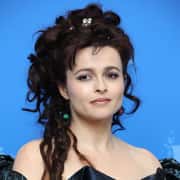
Helena Bonham Carter
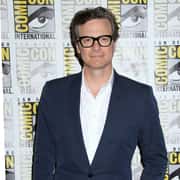
Colin Firth
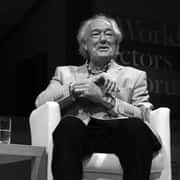
Michael Gambon
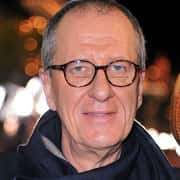
Geoffrey Rush
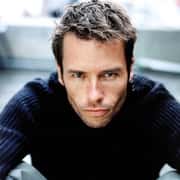
Timothy Spall
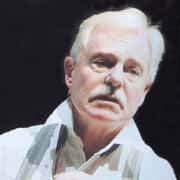
Derek Jacobi
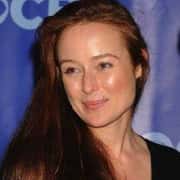
Jennifer Ehle
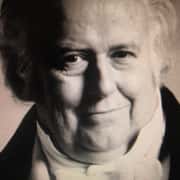
Roger Hammond
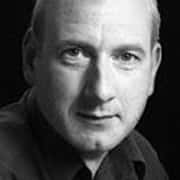
Adrian Scarborough
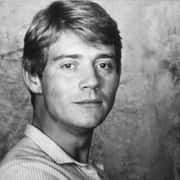
Anthony Andrews
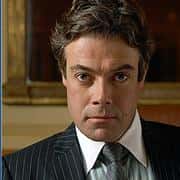
Robert Portal
Andrew havill.
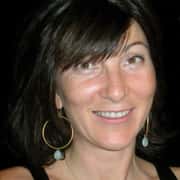
Ramona Marquez
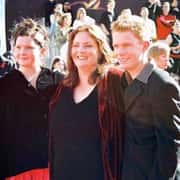
Calum Gittins
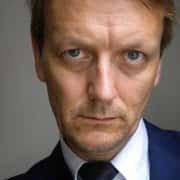
Paul Trussell
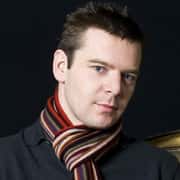
Freya Wilson
Richard dixon.
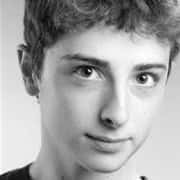

Dominic Applewhite
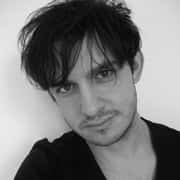
Filippo Delaunay
Ben wimsett.

Mary Robinson
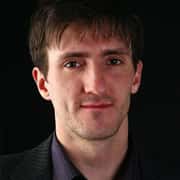
Charles Armstrong
- The King's Speech
- Entertainment
- Watchworthy
- Historical Entertainment
- Pop Culture
- Film Actors
- People In Film

Watch CBS News
The story behind "The King's Speech"
February 20, 2011 / 11:46 PM EST / CBS News
With 12 Oscar nominations, "The King's Speech" is among the most nominated films of all time. It's based on the true story of George VI, the father of the present queen of England. George VI was a man who, in the 1930s, desperately did not want to be king. He was afflicted nearly all his life by a crippling stammer which stood to rob Britain of a commanding voice at the very moment that Hitler rose to threaten Europe.
"The King's Speech" came, seemingly out of nowhere to become the film to beat on Oscar night. And Colin Firth is now the odds-on favorite to win best actor for his critically acclaimed portrayal of George VI.
The hidden letters behind "The King's Speech" What's it like to hold history in your hands? Scott Pelley had that chance, reporting on the Oscar-nominated film "The King's Speech." Hear from Colin Firth and Mark Logue, whose grandfather's friendship with a king made history.
Segment: "The King's Speech Extra: The real King George Extra: Colin Firth, King and Queen Extra: Firth's Oscar-nominated roles Extra: Firth's "bland" looks Pictures: Colin Firth on "60 Minutes"
When correspondent Scott Pelley asked Firth if he liked being king, Firth said, "I think it's hard to think of anything worse, really. I mean, I wouldn't change places with this man. And I would be very surprised if anybody watching the film would change places with this man."
"It's a perfect storm of catastrophic misfortunes for a man who does not want the limelight, who does not want to be heard publicly, who does not want to expose this humiliating impediment that he's spent his life battling," Firth explained. "He's actually fighting his own private war. He'd rather have been facing machine gun fire than have to face the microphone."
The microphone hung like a noose for the king, who was a stutterer from the age of 8. He was never meant to be king. But in 1936 his older brother gave up the throne to marry Wallace Simpson, a divorced American. Suddenly George VI and his wife Elizabeth reigned over an empire that was home to 25 percent of the world's population.
And like the George of over 1,000 years before, he had a dragon to slay: radio.
"When I looked at images of him or I listened to him, you do see that physical struggle," Firth said of the king's public speeches. "His eyes close, and you see him try to gather himself. And it's heartbreaking."
Among those listening was a 7-yr.-old British boy who, like the king, had a wealth of words but could not get them out.
"I was a profound stutterer. I started stuttering just before my third birthday. I didn't rid myself of it until I was 16. But my parents would encourage me to listen to the king's speeches during the war. And I thought, 'Wow if he can do that, there is hope for me.' So he became my childhood hero," David Seidler, who wrote the movie, told Pelley.
Seidler had grown up with the story, but he didn't want to tell the tale until he had permission from the late king's widow, known as The Queen Mother.
Seidler had sent a letter to her. "And finally, an answer came and it said, 'Dear Mr. Seidler, please, not during my lifetime the memory of these events is still too painful.' If the Queen Mum says wait to an Englishman, an Englishman waits. But, I didn't think I'd have to wait that long," he explained.
Asked why, Seidler said, "Well, she was a very elderly lady. Twenty five years later, just shy of her 102nd birthday, she finally left this realm."
After the Queen Mother's death in 2002, Seidler went to work. He found the theme of the story in the clash between his royal highness and an Australian commoner who became the king's salvation, an unknown speech therapist named Lionel Logue.
"The words that keep coming up when you hear about Lionel Logue are 'charisma' and 'confidence.' He would never say, 'I can fix your stuttering.' He would say, 'You can get a handle on your stuttering. I know you can succeed,'" Seidler said.
Geoffrey Rush plays Logue, an unorthodox therapist and a royal pain.
They say you can't make this stuff up, and in much of the film that's true. Seidler could not have imagined his work would lead to a discovery that would rewrite history. Researchers for the film tracked down Lionel Logue's grandson Mark, because the movie needed family photos to get the clothing right.
Mark Logue not only had pictures, he also had some diaries.
Produced by Ruth Streeter His grandfather's diaries were up in the attic in boxes that the family had nearly forgotten. When Logue hauled them down for the movie, he discovered more than 100 letters between the therapist and his king.
"'My dear Logue, thank you so much for sending me the books for my birthday, which are most acceptable.' That's so British isn't it. 'Yours very sincerely, Albert,'" Logue read from one of the letters.
"As you read through all these letters between your grandfather and the king, what did it tell you about the relationship between these two men?" Pelley asked.
"It's not the relationship between a doctor and his patient, it's a relationship between friends," Logue said.
We met Logue at the same address where his grandfather treated the king. And among the hundreds of pages of documents were Logue's first observations of George VI.
"Probably the most startling thing was the king's appointment card," Logue told Pelley. "It described in detail the king's stammer, which we hadn't seen anywhere else. And it also described in detail the intensity with the appointments."
The king saw Lionel Logue every day for an hour, including weekends.
"You know, he was so committed. I think he decided 'This is it. I have to overcome this stammer, and this is my chance,'" Mark Logue told Pelley.
In the film, the king throws himself into crazy therapies. But in truth, Logue didn't record his methods. The scenes are based on Seidler's experience and ideas of the actors.
"We threw in stuff that we knew. I mean, somebody had told me that the only way to release that muscle," actor Geoffrey Rush said of one of the speech exercises he did in the movie. "And of course, little did I realize that the particular lens they were using on that shot made me look like a Galapagos tortoise."
While the treatments spring from imagination, the actors read Logue's diaries and letters to bring realism to everything else.
"The line at the end, I found reading the diaries in bed one night, 'cause this is what I used to do every night, when Logue says 'You still stammered on the 'W'," Firth said.
The line was used in the movie.
"It shows that these men had a sense of humor. It showed that there was wit. It showed there was self mockery and it just showed a kind of buoyancy of spirit between them. The fact that he spoke on a desk standing upright in this little hidden room is something we found in the diaries as well," Firth told Pelley.
"In reality he had to stand up to speak, he had to have the window open," Firth said. "And he had to have his jacket off."
"And that wonderful, specific little eccentric observation that came from reality," Firth added.
One of the most remarkable things to come out of the Logue attic was a copy of what maybe the most important speech the king ever made - the speech that gave the movie its name. This was the moment when King George VI had to tell his people that for the second time in a generation they were at war with Germany. The stakes were enormous. The leader of the empire could not stumble over these words.
Mark Logue has the original copy of "the speech," typed out on Buckingham Palace stationary.
"What are all of these marks? All these vertical lines? What do they mean?" Pelley asked, looking over the documents.
"They're deliberate pauses so that the king would be able to sort of attack the next word without hesitation," Logue said. "He's replacing some words, he's crossing them out and suggesting another word that the King would find easier to pronounce."
"Here's a line that he's changed, 'We've tried to find a peaceful way out of the differences between my government.' He's changed that from, 'my government,' to, 'the differences between ourselves and those who would be our enemies,'" Pelley said.
"You know, I'm curious. Have either of you snuck into a theater and watched the film with a regular audience?" Pelley asked Firth and Rush.
"No, the only time I've ever snuck in to watch my own film I got quite nervous about it, because I just thought it be embarrassing to be seen doing that, so I pulled my collar up, and the hat down, over my eyes, and you know, snuck in as if I was going into a porn cinema, or something and went up the stairs, crept in, sidled in, to sit at the back, and I was the only person in the cinema. That's how well the film was doing," Firth remembered.
Now, it's a lot harder for Firth to go unnoticed. Recently he was immortalized with a star on Hollywood's Walk of Fame and brought along his Italian wife Livia.
They've been married 14 years and have two sons. With "The King's Speech," we realized Firth is one of the most familiar actors that we know almost nothing about. So we took him back to his home town Alresford in Hampshire, outside London. He's the son of college professors, but Firth dropped out of high school to go to acting school.
"But you don't have a Hampshire accent," Pelley pointed out.
"No. My accent has changed over the years, as a matter of survival. So until I was about 10, 'I used to talk like that,'" Firth replied, mimicking the local accent. "I remember it might have been on this street, actually, where I think the conversation went something like, 'Oy, you want to fight?' And I said, 'No, I don't.' 'Why not?' 'Well, 'cause you'll win.' 'No, I won't.' 'Well, will I win then?' 'Well, you might not.' And so, you know, we went trying to process the logic. And I thought, 'Have we dealt with it now?"
"Do we still have to fight?" Pelley asked.
"Do we actually have to do the practical now? We've done the theory," Firth replied.
He wanted us to see his first stage. It turned out to be the yard of his elementary school where he told stories from his own imagination.
"And at lunch times on the field up here, the crowd would gather and demand the story. They'd all sit 'round and say, 'No, we want the next bit,'" Firth remembered.
Firth told Pelley he found his calling for acting at the age of 14.
Asked what happened then, he told Pelley, "I used to go to drama classes up the road here on Saturday mornings. And one day I just had this epiphany. It was I can do this. I want to do this."
He has done 42 films in 26 years, most of them the polar opposite of "The King's Speech," like "Mamma Mia!"
"How hard was it to get you to do the scene for the closing credits?" Pelley asked, referring to Firth doing a musical number in an outrageous, Abba-inspired outfit.
"I think that's the reason I did the film," Firth joked.
"You have no shame?" Pelley asked.
"I'm sorry. That's if one thing has come out of '60 Minutes' here, it's we have discovered, we've unveiled the fact that Colin Firth has no shame. I am such a drag queen. It's one of my primary driving forces in life. If you cannot dangle a spandex suit and a little bit of mascara in front of me and not just have me go weak at the knees," Firth joked.
From queen to king, Firth is an actor of amazing range who now has his best shot at this first Oscar.
Like George VI himself, this movie wasn't meant to be king. "The King's Speech" was made for under $15 million. But now the movie, the director, the screenwriter David Seidler, who made it happen, and all the principal actors are in the running for Academy Awards. It would be Geoffrey Rush's second Oscar.
"What advice to you have for this man who may very likely win the Oscar this year?" Pelley asked Rush.
"Well enjoy it. It isn't the end of anything because you will go on and do a couple more flops probably, you might even sneak into another film in which no one is in the house," Rush joked.
But on Oscar night, stammering King George may have the last word. A lot of movies are based on true stories. But "The King's Speech" has reclaimed history.
More from CBS News
Movie Reviews
Tv/streaming, collections, great movies, chaz's journal, contributors, the rain in sp…sp...sp....

Now streaming on:
"The King's Speech" tells the story of a man compelled to speak to the world with a stammer. It must be painful enough for one who stammers to speak to another person. To face a radio microphone and know the British Empire is listening must be terrifying. At the time of the speech mentioned in this title, a quarter of the Earth's population was in the Empire, and of course much of North America, Europe, Africa and Asia would be listening — and with particular attention, Germany.
The king was George VI. The year was 1939. Britain was entering into war with Germany. His listeners required firmness, clarity and resolve, not stammers punctuated with tortured silences. This was a man who never wanted to be king. After the death of his father, the throne was to pass to his brother Edward. But Edward renounced the throne "in order to marry the woman I love," and the duty fell to Prince Albert, who had struggled with his speech from an early age.
In "The King's Speech," director Tom Hooper opens on Albert ( Colin Firth ), attempting to open the British Empire Exhibition in 1925. Before a crowded arena and a radio audience, he seizes up in agony in efforts to make the words come out right. His father, George V ( Michael Gambon ), has always considered "Bertie" superior to Edward ( Guy Pearce ), but mourns the introduction of radio and newsreels, which require a monarch to be seen and heard on public occasions.
At that 1925 speech, we see Bertie's wife, Elizabeth (Helena Bonham Carter), her face filled with sympathy. As it becomes clear that Edward's obsession with Wallis Simpson (Eve Best) is incurable, she realizes her Bertie may face more public humiliation. He sees various speech therapists, one of whom tries the old marbles-in-the-mouth routine first recommended by Demosthenes. Nothing works, and then she seeks out a failed Australian actor named Lionel Logue ( Geoffrey Rush ), who has set up a speech therapy practice.
Logue doesn't realize at first who is consulting him. And one of the subjects of the film is Logue's attitude toward royalty, which I suspect is not untypical of Australians; he suggests to Albert that they get on a first-name basis. Albert has been raised within the bell jar of the monarchy and objects to such treatment, not because he has an elevated opinion of himself but because, well, it just isn't done. But Logue realizes that if he is to become the king's therapist, he must first become his friend.
If the British monarchy is good for nothing else, it's superb at producing the subjects of films. "The King's Speech," rich in period detail and meticulous class distinctions, largely sidesteps the story that loomed over this whole period, Edward's startling decision to give up the crown to marry a woman who was already divorced three times. Indeed, the Duke and Duchess of Windsor (as they became) would occupy an inexplicable volume of attention for years, considering they had no significance after the Duke's abdication. The unsavory thing is that Wallis Simpson considered herself worthy of such a sacrifice from the man she allegedly loved. This film finds a more interesting story about better people; Americans, who aren't always expert on British royalty, may not necessarily realize that Albert and wife Elizabeth were the parents of Queen Elizabeth II. God knows what Edward might have fathered.
Director Tom Hooper makes an interesting decision with his sets and visuals. The movie is largely shot in interiors, and most of those spaces are long and narrow. That's unusual in historical dramas, which emphasize sweep and majesty and so on. Here we have long corridors, a deep and narrow master control room for the BBC, rooms that seem peculiarly oblong. I suspect he may be evoking the narrow, constricting walls of Albert's throat as he struggles to get words out.
The film largely involves the actors Colin Firth, formal and decent, and Geoffrey Rush, large and expansive, in psychological struggle. Helena Bonham Carter, who can be merciless (as in the "Harry Potter" films), is here filled with mercy, tact and love for her husband; this is the woman who became the much-loved Queen Mother of our lifetimes, dying in 2002 at 101. As the men have a struggle of wills, she tries to smooth things (and raise her girls Elizabeth and Margaret). And in the wider sphere, Hitler takes power, war comes closer, Mrs. Simpson wreaks havoc, and the dreaded day approaches when Bertie, as George VI, will have to speak to the world and declare war.
Hooper's handling of that fraught scene is masterful. Firth internalizes his tension and keeps the required stiff upper lip, but his staff and household are terrified on his behalf as he marches toward a microphone as if it is a guillotine. It is the one scene in the film that must work, and it does, and its emotional impact is surprisingly strong. At the end, what we have here is a superior historical drama and a powerful personal one. And two opposites who remain friends for the rest of their lives.
Note: The R rating refers to Logue's use of vulgarity. It is utterly inexplicable. This is an excellent film for teenagers.

Roger Ebert
Roger Ebert was the film critic of the Chicago Sun-Times from 1967 until his death in 2013. In 1975, he won the Pulitzer Prize for distinguished criticism.
Now playing

The Long Game

You'll Never Find Me
Sheila o'malley.

Apples Never Fall
Cristina escobar.

Glenn Kenny

Little Wing
Marya e. gates.

Simon Abrams
Film credits.

The King's Speech (2010)
Rated R for language
118 minutes
Directed by
- David Seidler
Latest blog posts

Until It’s Too Late: Bertrand Bonello on The Beast

O.J. Simpson Dies: The Rise & Fall of A Superstar

Which Cannes Film Will Win the Palme d’Or? Let’s Rank Their Chances

Second Sight Drops 4K Releases for Excellent Films by Brandon Cronenberg, Jeremy Saulnier, and Alexandre Aja
The True Story Behind "The King's Speech"
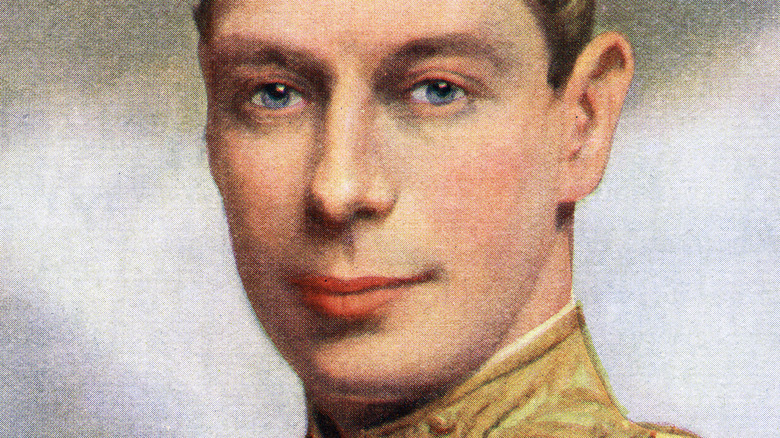
"The King's Speech" is a 2010 dramatic biographical film, recounting the friendship between King George VI of England and his Australian speech therapist, Lionel Logue. The film also covers Edward VIII's 1936 abdication, and George VI's subsequent coronation and shouldering of responsibility during World War II. George VI ultimately must conquer his stammer to assist and guide Britain during the war.
As a film, "The King's Speech" takes a few liberties with the historical timeline and in regards to simplifying certain characters. One element historians took particular umbrage with was the depiction of Winston Churchill . However, overall it is fairly faithful to the historical record. For one thing, George VI really did have a speech impediment since the age of eight, and Lionel Logue did work with him for several years. They did stay friends until they both died. Certain scenes, such as George VI's coronation, were praised for their accurate recapturing of the feel of the 1930s.
The main concept the film changed was simply adding drama to certain scenes, such as the speech announcing war with Germany towards the end. It also condensed the historical timeline significantly, shortening events. This was mostly done for the sake of keeping the narrative moving. Overall, however, " The King's Speech " is a fairly accurate, heartwarming rendering of George VI and Lionel Logue's friendship.
Prince Albert had a stutter as a child
Prince Albert, later George VI, developed a stutter when he was eight that he carried through to his early adult life. His parents were not terribly affectionate with him, and he was susceptible to tears and tantrums – traits he also carried through his adult years, writes Biography . Given that many of his public duties required speeches, Albert needed to – and worked tirelessly – to fix his stammer with multiple doctors and therapists, writes Stuttering Help . He wasn't successful with any speech therapies until he worked with elocutionist and informal speech therapist Lionel Logue, beginning in the 1920s.
When Logue saw the then-Duke of York give a speech, he said to his son, "He's too old for me to manage a complete cure. But I could very nearly do it. I'm sure of that." (via Stuttering Help ). He was right, and his positive attitude helped the duke recover from previous failures that had made him believe the problem caused him to be mentally deficient instead of simply physically injured. Despite how long they worked together, the duke's speech issues had more to do with how held his jaw and pronounced words; the result was that his stammer was mainly cleared up in a matter of months as opposed to years.
Lionel Logue was a self-taught speech therapist
Lionel Logue was an Australian speech therapist who, not being formally trained, used methods he had discovered and created on his own. He worked as an elocutionist first, but fell into helping Australian World War I veterans with speech defects, writes The ASHA Leader . No one else was doing what he was with the veterans, and speech therapy and audiology programs didn't even get off the ground until the 1940s (via UNC Health Sciences Library ). Logue was even a founder of the College of Speech Therapists.
Just before World War I, Logue worked a variety of jobs as a teacher of elocution and drama, theater manager, and reciter of Shakespeare and Dickens (via Speech Language Therapy's Caroline Bowen, a speech language pathologist ). Logue worked with patients on their speech, but also on confidence and the self-belief that they could accomplish what they set out to do. He was empathetic with his patients, and learned from each case he worked on. Logue originally tried out as an actor, and as a result, his manner was somewhere between a teacher and an artist. He was serious about his life's work and resolved to avoid cheapening it by writing a book about his efforts with the king.
Logue began working with Prince Albert in 1926
Elizabeth, the Duchess of York, first encouraged her husband to work with Lionel Logue, though the meeting as depicted in the film between Elizabeth and Logue likely didn't happen (via Logue and Conradi's "The King's Speech" ). Logue thus began working with the Duke of York in October 1926, soon after he opened his London practice on Harley Street. Logue first diagnosed the Duke with, according to CNN , acute nervous tension and the habit of closing the throat, which caused him to clip words out.
Logue met with him daily for the next two or three months (in advance of a visit to Australia), and his stammer was gone (for the most part) within that time frame; it didn't take years of treatment (via Speech Language Therapy ). Unlike in the film, in reality, the Duke and Logue weren't necessarily aiming for complete fluency. However, they did continue to work together for the next two decades, mainly on the royal's speeches.
Logue worked with Albert for over 15 years
Though the film condenses the timeline to make it seem as though everything takes place over just a few years, Logue and Albert worked together for decades (via CNN ). "The King's Speech" begins in 1925 with the close of the British Empire Exhibition, which would be historically accurate, but time simply speeds by until the film depicts the abdication of Edward VIII in 1936 and later the outbreak of war in 1939 in just a few hours; it doesn't really feel as though a decade and a half have passed.
Regardless, Logue and the duke worked together on speeches even after the duke had mostly mastered his stammer. Lionel Logue's methods were unorthodox and primarily self-taught. He never specifically said what course of treatment he worked on with the duke, saying, according to The ASHA Leader : "...on the matter of Speech Defects, when so much depends on the temperament and individuality, a case can always be produced that can prove you are wrong. That is why I won't write a book." Much of the ideas for the therapy sessions depicted in the film come from Logue's diaries (though plenty of the dialogue was invented), which were inherited by his grandson Mark. They were used in the film, though the director only saw them late in the film's production.
Any sort of therapy is inherently individual, not to mention personal (via Psychiatric Times ). It's no wonder that Logue decided to avoid writing about his work.
Wallis Simpson was a more complex person than the film indicates
King Edward VIII was crowned in January 1936 and abdicated in December of the same year in order to marry Wallis Simpson , who had been twice divorced (via History ). His younger brother was proclaimed king the next day. The film is sympathetic to George VI and Elizabeth, and Wallis Simpson is cast as a vaguely Nazi-supporting villain; there is little depth to her character. However, her life and motivations were shrouded in rumors from the British upper classes and the media.
The upper classes, who learned about the Edward-Wallis romance before the British media, in particular saw her as an uncouth American divorcee, and had a hard time figuring out why Edward wanted to be with her. When the media did find out, in December 1936, she was both ruined and revered by them, according to History Extra . However, after moving overseas more-or-less permanently she faded from the spotlight. Her unfortunate reputation from the nobles stuck with her.
Ultimately, George VI didn't allow his brother and sister-in-law, who had moved to France, to be productive for the royal family; they asked multiple times for jobs and were denied (via History Extra ). Awful rumors followed Wallis Simpson even past her death in the 1980s, including one that stated she would do anything to become queen of England. Though it's clear both on and off screen that she and Elizabeth disliked each other, Wallis was more than a king-stealing villain.
Churchill was actually opposed to Edward VIII's abdication
One major element of the film that historians had trouble with is Churchill's abrupt support of George VI, writes Daily History . In real life, he encouraged Edward VIII not to abdicate in 1936, and remained a supporter of the royal, believing something could be worked out without having to resort to abdication. George VI and Elizabeth didn't fully support Churchill later in life due to his actions during the abdication. However, Churchill was later knighted by Elizabeth II (via Biography ).
This element is likely written as such for the film due to the writers having a hard time writing someone as beloved as Churchill with actual flaws. The writers of "Saving Mr. Banks" had a similar issue with Walt Disney and his flaws. As a result, it is one of the only concrete historical aspects that left historians scratching their heads in confusion. Everything else that is changed in the film is mainly done for the sake of adaptation, drama, and the good of the narrative. This change seems to be for the sake of preserving Churchill's reputation. Considering the film's lead-up of events to World War II, and Churchill's role in Britain's survival, it isn't that surprising.
King George VI's coronation was less fraught than the film depicts
Logue worked with George VI on his coronation speech in 1937. Five days afterward, the king wrote a heartfelt thank you letter for the assistance (via Tatler ), attributing the success to Logue's "expert supervision and unfailing patience." Just as in the film, Logue and his wife are seated in the royal box, so high up that Myrtle Logue needed to use opera glasses in order to see, writes CNN .
However, by this time, the king had mostly mastered his speech impediment, and the dramatic scene in the film with Logue and St. Edward's chair is likely fictional. It was written for the sake of the narrative of George VI realizing he does have a voice. Reality isn't necessarily so cinematic, and after weeks of working on the speech with Logue, George VI delivered it flawlessly. Regardless, according to Daily History , the film accurately conveys the atmosphere of the 1930s and the coronation of a new king. In reality, the king and Logue likely didn't have the same miscommunication as they do in the film, and it is doubly heartwarming that Logue and his wife were seated with the royal family, just because of the services Logue had rendered the new king.
Logue was more deferential to his royal patient
Geoffrey Rush's portrayal is much more animated than Logue likely was in reality. Logue certainly addressed Prince Albert respectfully, and the scenes of swearing in Logue's office are likely invented. Logue also never referred to the prince by a nickname, much less one used exclusively by the family. They were friends in real life, but their relationship was more realistically distant.
According to CNN , the letters Logue wrote to the king are addressed to "Your Royal Highness". On the other hand, the king signed his letters with his first name, indicating a measure of friendship between the two men. Logue also apparently allowed George VI to set treatment goals due to his position. Though they did end up being friends, Logue never forgot who exactly his patient was, and treated him accordingly (via Daily History ). Historical films always add heart-to-heart speeches between people which probably never actually happened but work for the sake of drama and the narrative. "The King's Speech" is no exception.
The speech announcing war with Germany was less dramatic
Lionel Logue further assisted George VI during the 1939 speech when he announced Britain was at war with Germany. However, Logue wasn't actually in the room with him, as the film depicts, and only wrote notes on places for the king to pause to collect himself when speaking or on which words to stress, according to CNN . Keep in mind that by this point in time, 13 years after meeting Logue, the king had essentially mastered his stammer. George VI also stood to give the speech, though photographs show him in full military uniform and sitting down.
Lionel Logue's diaries also answered a previously unknown question about the speech that was added to the film. George VI stammered on some of the W's in the speech, and according to a comment he made to Logue, it was so the people would recognize him, writes CNN .
The film turns the event into a climactic event, as a culmination of the years of work the king and Logue have put into his affliction – and which the audience has just watched on screen for the past two hours. Also, though it is unlikely the information was revealed at this exact time in real life, the character of Winston Churchill tells the king just before this speech that he, too, was a stammerer as a child, writes The Lancet . This element is true, though it is positioned for the sake of cinematic drama.
George and Logue's friendship didn't fracture over credentials
In the film, coronation preparations pause when the archbishop of Canterbury, Cosmo Lang, mentions that Logue doesn't have any formal training. Not having known this beforehand, George VI becomes outraged and only calms after Logue provokes him into speaking without stammering, causing him to realize that he actually can speak accurately. This entire element is invented for the film, presumably for the sake of drama (and humor).
By this point, the two men had known each other for over a decade and were friends. Though their relationship was primarily professional, in scouting out Logue's help, the king must have understood his credentials and it didn't bother him; after all, he worked with Logue, voluntarily, for decades (via Daily History ). Logue's formality likely kept their friendship professional enough that they probably had few personal disagreements.
Logue and the king wrote letters back and forth for years; the earlier letters were signed "Albert" and the later letters "George" by the king, according to CNN , indicating a measure of friendship that was likely meted out to few people. When Logue asked the king in 1948 if he would serve as patron of the College of Speech Therapists, George VI immediately agreed and it became known as the Royal College of Speech Therapy, writes The ASHA Leader .
The film has an obvious pro-George VI bias
Due to being written from a historical perspective, "The King's Speech" supports George VI, Logue, Elizabeth, and even Winston Churchill as characters and historical figures much more than it does George V, Edward VIII, or Wallis Simpson. The film has an agenda and a narrative it set out to tell: the story of how George VI overcame his stammer and led a nation successfully through a war.
According to The Gazette , the film's textual inclusion of Logue's appointment as a Member of the Royal Victorian Order is accurate. The king appreciated his services enough to reward him with a title for them, and this element certainly adds to the theme of friendship the film is so fond of.
In another interesting example of bias, however, the film omits Edward VIII's Nazi sympathies entirely, though Simpson is written to seem like an outsider to the royals. This was likely done for the sake of Edward's surviving family, though it was a slightly odd omission considering the context of the film. Edward isn't cast as a villain, however, he doesn't quite seem to realize what he's forcing his brother to step into. Though he immediately supports George, Edward doesn't seem to comprehend the royal family's – and the film's – endless demand of duty.
The Definitive Voice of Entertainment News
Subscribe for full access to The Hollywood Reporter
site categories
David seidler, oscar-winning ‘the king’s speech’ writer, dies at 86.
'The King's Speech' won best picture, best director, best actor and best original screenplay at the 2011 Academy Awards.
By Zoe G Phillips
Zoe G Phillips
- Share this article on Facebook
- Share this article on Twitter
- Share this article on Flipboard
- Share this article on Email
- Show additional share options
- Share this article on Linkedin
- Share this article on Pinit
- Share this article on Reddit
- Share this article on Tumblr
- Share this article on Whatsapp
- Share this article on Print
- Share this article on Comment

David Seidler, the Oscar-winning screenwriter behind 2010’s The King’s Speech , has died. He was 86.
The London native died Saturday during a fly-fishing trip in New Zealand, his manager, Jeff Aghassi, told The Hollywood Reporter .
“David was in the place he loved most in the world — New Zealand — doing what gave him the greatest peace, which was fly-fishing,” Aghassi said. “If given the chance, it is exactly as he would have scripted it.”
Related Stories
Rico wade, outkast producer and organized noize member who co-founded the dungeon family collective, dies at 52, ron weiner, emmy-winning director for 'donahue,' dies at 93.
Seidler’s script was motivated by his experience overcoming a stutter as a child. He won an Oscar for original screenplay at the 2011 Academy Awards, and the film also won best actor for Firth, best director for Tom Hooper and best picture.
The film was also adapted into a play that has since been performed on four different continents, including at London’s West End.
Seidler’s other writing included Francis Ford Coppola’s Tucker: The Man and his Dream (1988), animated children’s features Madeline: Lost in Paris (1999) and Quest for Camelot (1998). He also wrote 2016’s The Queen of Spades and the 1988 telefilm Onasiss: The Richest Man in the World (1988).
Per Aghassi, Seidler had remained passionate about screenwriting and had multiple documentaries, limited series and feature films in development at the time of his death.
Seidler is survived by his children, Marc and Maya.
THR Newsletters
Sign up for THR news straight to your inbox every day
More from The Hollywood Reporter
Science takes center stage at the 2024 breakthrough prize ceremony, o.j. simpson death could change equation for goldman, brown civil suit payouts, a lawsuit, a porn mogul and a ‘pawn stars’ cameo: the bizarre afterlife of o.j. simpson’s white bronco, george and amal clooney on “war on truth,” arizona abortion ban, ron goldman’s family calls o.j. simpson’s death “a mixed bag of complicated emotions”, adam levine reacts to mick jagger dancing to maroon 5 hit “moves like jagger”: “really surreal”.
- Our Mission
- Now Playing
- Concierge Services
- Discount Tickets

A fascinating rendering of ‘The King’s Speech’ at the National Theatre
Playwright David Seidler presents a stage version that resembles and differs from his Oscar-winning screenplay
Given that so many plays and films these days are based on, drawn from or inspired by each other, it is worth examining the differences between these media and the treatments they require. The King’s Speech, making its DC debut at the National Theatre until Sunday, is an excellent case in point.
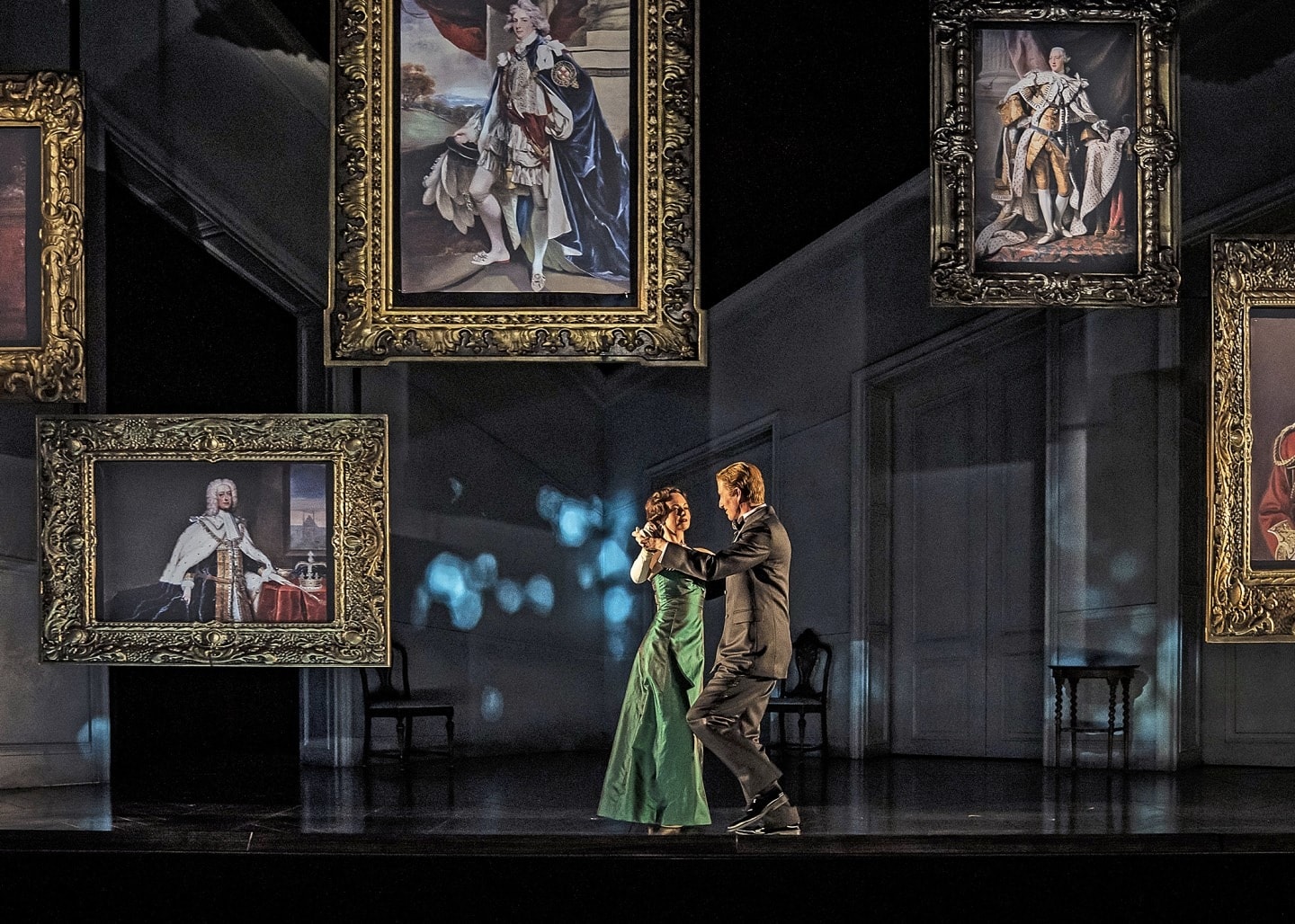
In a way, this is something of a chicken-and-egg situation. Playwright David Seidler originally wanted to stage the true story of Bertie, later King George VI, overcoming his severe stammer to lead Britain through the dark years of World War II. He was not granted permission, however, until after the death of the Queen Mother in 2002. When he finally returned to the story in 2005, it was reconceived as a movie – which went on to earn 12 Oscar nominations and win four: Best Picture, Best Director, Best Actor for Colin Firth and Best Screenplay for Seidler himself.
Not willing to rest on his laurels, Seidler, who himself suffered as a child from a stammer brought on by losing family members in the Holocaust, turned his screenplay back into a stage script. The play premiered in the UK in 2011 to strong reviews, but not enough time had passed since the film, and the West End production closed after two months.
Now, at long last, the stage version of The King’s Speech has reached the US, and it both resembles and differs from its cinematic older brother in telling ways. Coming from the same pen, many of the scenes are word-for-word duplicates, but they are presented quite differently. Film is most often a naturalistic and subtle medium, full of close-ups and details that capture the essence and emotions of the characters. Theater, by necessity, must be larger and more abstract. A large playhouse demands a broader perspective — literally.
This is abundantly clear at the National in the striking set by Kevin Depinet that greets the audience when they enter. It presents a strong forced perspective view of a huge room or corridor, with projections on the walls representing different venues — Buckingham Palace, Harley Street offices, Westminster Abbey and even Nazi rallies. The negative space above the converging walls forms a looming, black “V” that hangs over the protagonist Bertie (Nick Westrate) like a sword of Damocles — or like the huge “V” in the name of his father, King George V, whose oppressive presence overpowers his life.
As this broader canvas demands, Michael Wilson’s staging is fluid and capable. The footmen and courtiers whisk in chairs, desks, thrones and even a casket with the silent efficiency one would expect from the royal household. Scenes that in the film are carefully detailed by real settings are quickly indicated by a flash of a stained-glass window or a newsreel on the wall.
The film presented a gentle, sympathetic portrayal of all the characters, including Bertie’s frightening father and even Edward VIII and Wallis Simpson, whose obsession with each other precipitated a constitutional crisis. Perhaps it was too gentle; it was criticized for glossing over the politics of the era, including the appeasement of Hitler and Edward VIII’s Nazi sympathies.
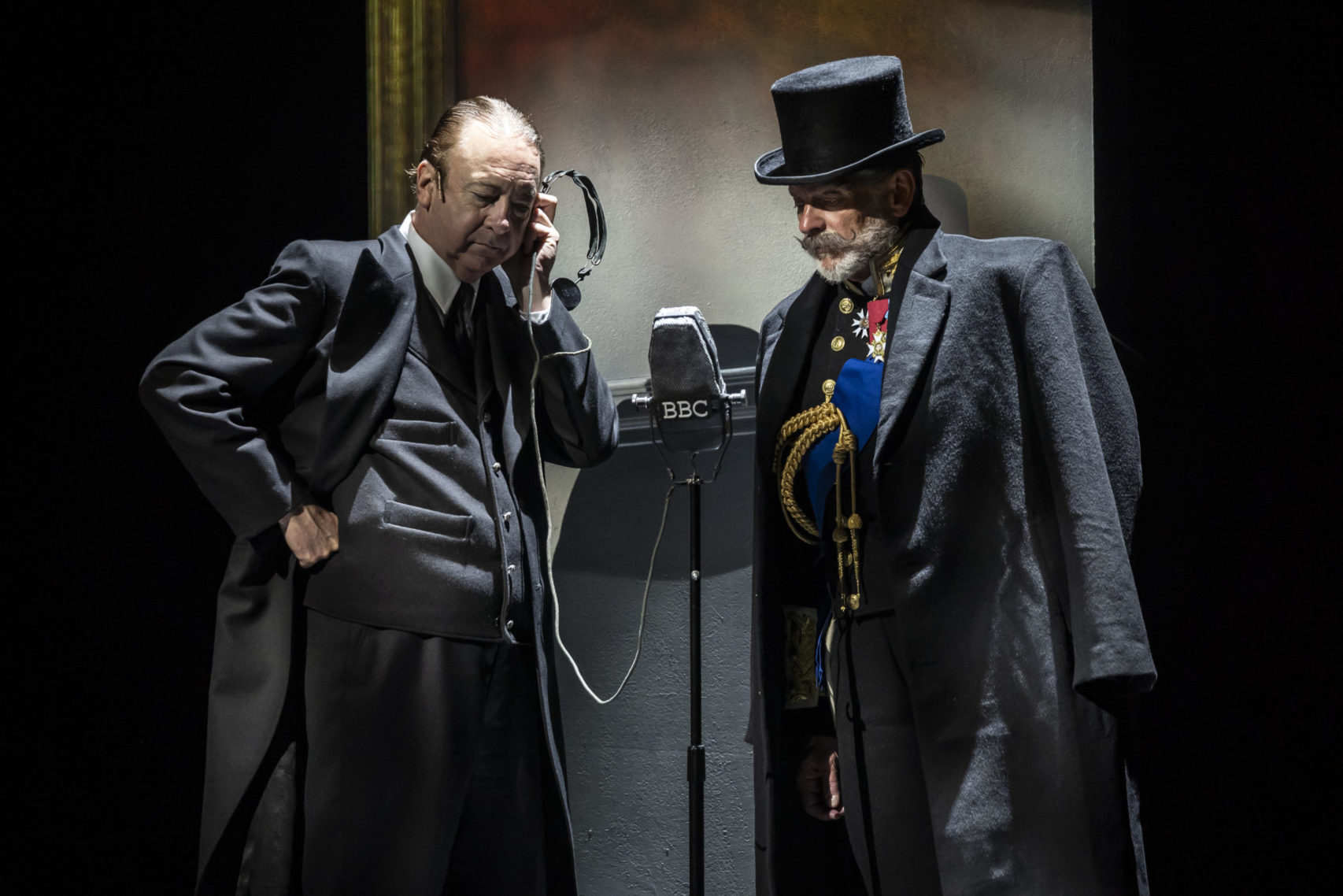
The play takes a harsher tone. The characters are drawn with a broader and more vivid brush. While the movie was a comforting story of adversity overcome by courage and friendship in a time of crisis, the play reveals more conflict. The threats to Britain and the throne are made clear by politicians like Churchill (Kevin Gudahl) and Stanley Baldwin (David Lively). Edward (Jeff Parker) and Wallis (Tiffany Scott) appear not only as selfish hedonists but as full-fledged Nazis, poised to swoop in and retake the throne as Hitler’s puppet monarchs if Bertie fails. There is even a moment when the amusingly sour Archbishop of Canterbury (Noble Shropshire) reveals his own lust for power. Bertie bitterly reveals some details about his father’s death that throw cynical political realities into sharp relief.
With all these conflicts, one hardly needs more. It seems unnecessary to introduce a subplot in which the speech therapist’s wife Myrtle (Elizabeth Ledo) taxes him with her disappointment that he broke his promise to take her back to their native Australia — as if his effort to help the King stand up to Hitler and save the Commonwealth is some sort of betrayal of her. This creates a strange rivalry between her and Queen Elizabeth (Maggie Lacey), who is much sharper and more snobbish than in the movie, and at one point compares herself to Lady Macbeth.
The actors embody the main roles with the conviction and commanding presence the stage demands. Michael Bakkensen imbues Lionel Loeb, the speech therapist, with more passion and conflict than Geoffrey Rush’s unflappable film version. And although Nick Westrate, as Bertie/George VI, can’t provide the subtlety and interior detail that won Firth an Oscar, he portrays the reluctant King with frustration and fire that fills the theater.
All in all, this is a fascinating play, for what it reveals about both the demands of duty in a momentous crisis in British history and the different artistic demands of film vs. stage.
It is only in town for a few days. See it while you can.
Running Time: Approximately 2 hours plus one 15-minute intermission.
The King’s Speech plays through Sunday, February 16 at The National Theatre, 1321 Pennsylvania Avenue NW, Washington, DC 20004. For tickets, call 202-628-6161 or purchase them online .
RELATED ARTICLES MORE FROM AUTHOR

‘Message in Bottle’ at Kennedy Center brings hope to a turbulent world

A moving and thought-provoking ‘Unknown Soldier’ is recalled at Arena

Creepy and comic ‘Ride the Cyclone’ takes a leap at BSU
Leave a reply cancel reply.
Save my name, email, and website in this browser for the next time I comment.
David Seidler, ‘The King’s Speech’ screenwriter, dies at 86
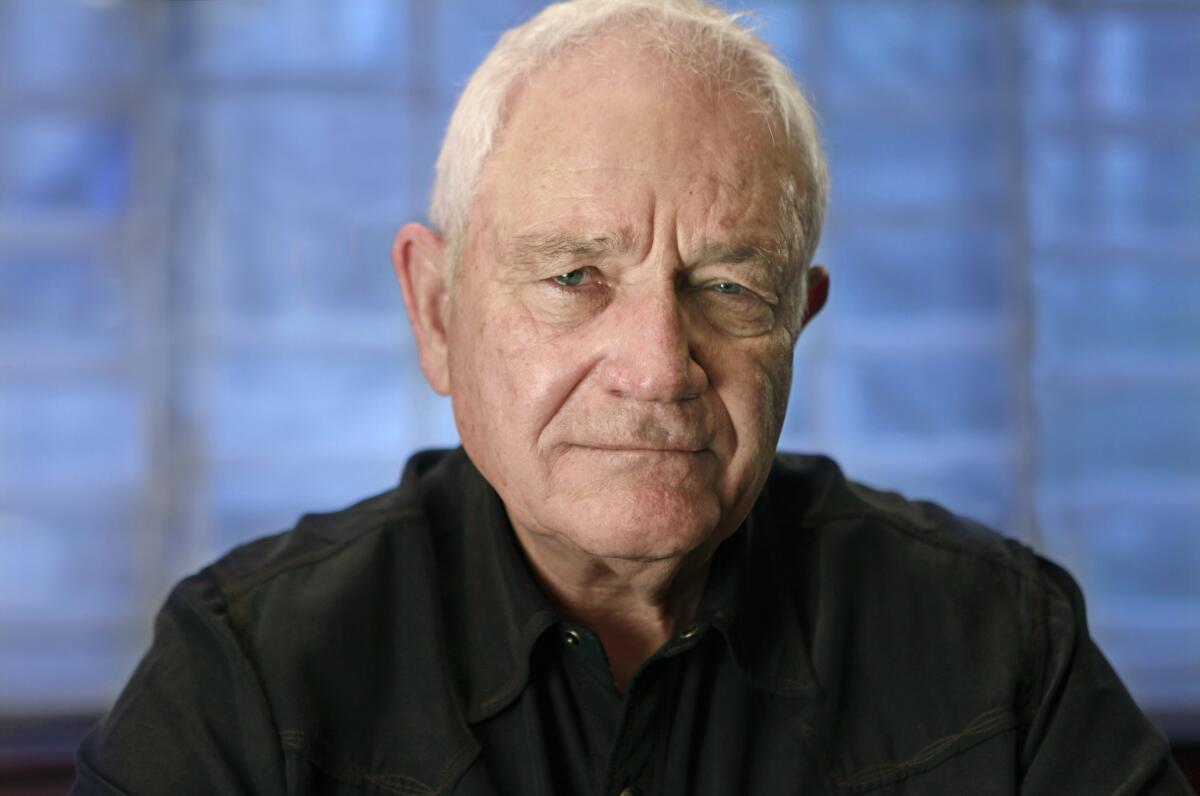
- Show more sharing options
- Copy Link URL Copied!
David Seidler, the Oscar-winning screenwriter of the acclaimed 2010 drama “The King’s Speech,” has died. He was 86.
Seidler’s manager, Jeff Aghassi, told The Times that Seidler died Saturday while fly-fishing in New Zealand. No specific cause of death was given, but Aghassi said, “David was in the place he loved most in the world — New Zealand — doing what gave him the greatest peace, which was fly-fishing. If given the chance, it is exactly as he would have scripted it.”
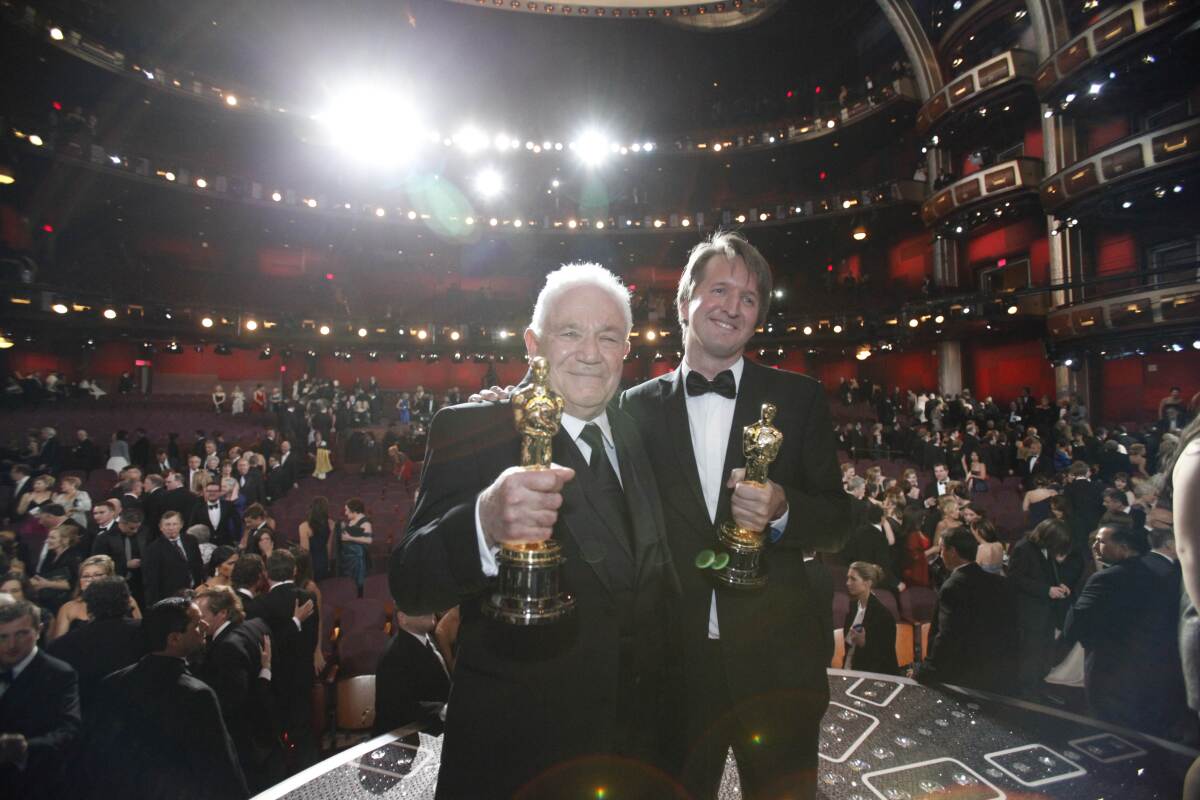
“The King’s Speech” swept the top categories at the Oscars in 2011, winning Seidler the award for original screenplay; the film also was named best picture, and Tom Hooper won in the directing category and Colin Firth won lead actor.
“The King’s Speech” is based on the true story of Britain’s King George VI (portrayed by Firth), who struggled with a severe lifelong stutter and was helped by Australian speech therapist Lionel Logue (Geoffrey Rush) ahead of his first national radio address after the start of World War II.
“Before the invention of radio, it was enough that they were these supreme, remote figures, who you saw at a distance over the heads of thousands of people, and they had great plumes on their heads so you knew which one was the king,” Seidler told The Times in 2010 . “As a common man, you never heard the king speak. And then suddenly, you not only heard him speak, but you could hear him in your living room, in the privacy of your home where you could comment rudely about him. Big difference.”
Seidler himself overcame a childhood stutter, an experience he drew on in crafting an empathetic portrayal of George VI as he’s faced with a monumental task of public speaking at a perilous moment for his country.
“You know, I couldn’t have written this story when I was 33,” he told The Times in 2011 . “Life provides all sorts of terrible obstacles and only later do you realize that they are really all for the good. I was crushed when [George VI’s widow, Queen Elizabeth] the Queen Mother told me not to write this in her lifetime. But I wasn’t ready. To tell the story correctly, I had to plunge myself back into the experience of being a stutterer. That meant going back to the pain and isolation I knew as a child. And I know inside that I just couldn’t have done that as a younger man. I wasn’t ready until now.”
Seidler, who was born in 1937 in Britain, moved to the U.S. in the early days of World War II. He attended Cornell University, where he was friends with writer Thomas Pynchon. His early gigs in entertainment included writing Japanese monster-movie translation dubs, and he broke into TV with the 1960s series “Adventures of the Seaspray.”
Before “The King’s Speech,” Seidler had an up-and-down career of features, including 1988’s “Tucker: The Man and His Dream,” about automobile designer Preston Tucker, directed by his former high school classmate Francis Ford Coppola.
The two had a bitter falling-out after the film, though, and Seidler returned to his career in television, which included the 1999 children’s animated feature “Madeline: Lost in Paris.” Before that, he’d written biopic-style TV movies such as 1985’s “Malice in Wonderland,” which starred Elizabeth Taylor as Louella Parsons, and 1988’s “Onassis: the Richest Man in the World.”
He survived a cancer scare in the early 2000s that pushed him to finally tackle his life’s dream of writing the script that became “The King’s Speech.”
“I was feeling powerfully sorry for myself, but then I rallied and threw myself into my work,” he told The Times. “I said to myself, ‘David, if you’re not going to write Bertie’s [George VI, as he was known to family and close friends] story now, when exactly are you doing to do it?’ “
More recently, a stage version of “The King’s Speech” was a success on London’s West End and was planned for a Broadway debut before the 2020 pandemic. According to Aghassi, Seidler “had multiple projects in active development, including documentary, limited series and feature films.”
Seidler is survived by two adult children, Maya and Marc.
More to Read
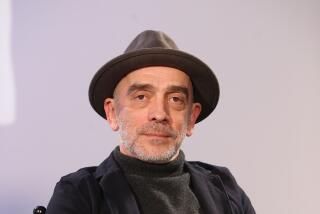
Adrian Schiller, British actor known for ‘The Last Kingdom’ and ‘Victoria,’ dies at 60
April 4, 2024
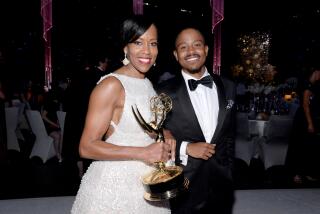
Regina King says son Ian is ‘always with me,’ breaking her silence two years after his death
March 14, 2024
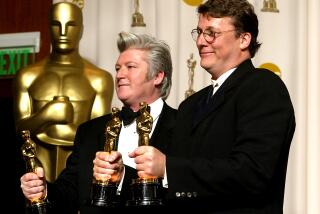
Oscars rewind -- 2004: Why the hair and makeup winners apologized to their cast
March 4, 2024
The biggest entertainment stories
Get our big stories about Hollywood, film, television, music, arts, culture and more right in your inbox as soon as they publish.
You may occasionally receive promotional content from the Los Angeles Times.

August Brown covers pop music, the music industry and nightlife policy at the Los Angeles Times.
More From the Los Angeles Times

Coachella 2024: No Doubt dust off energetic, greatest hits set with assist from Olivia Rodrigo
April 14, 2024

Coachella 2024: Photos of festival fashion
April 13, 2024
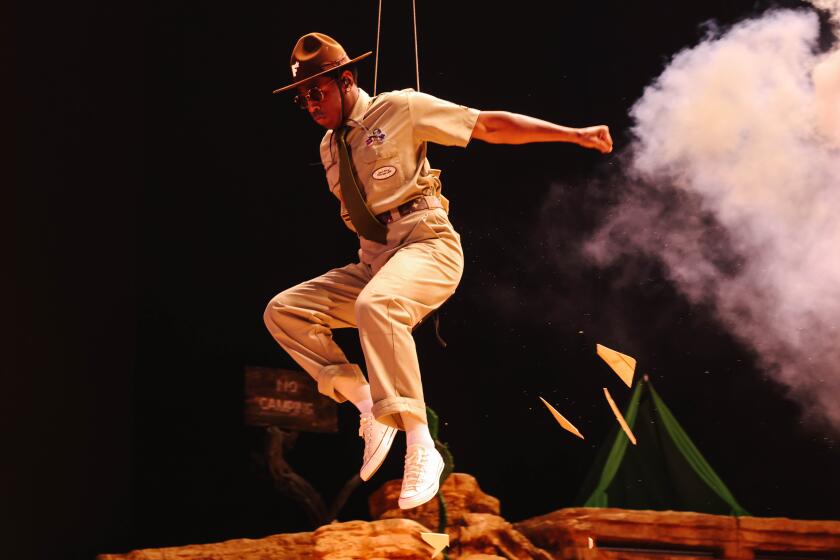
Coachella 2024: Tyler the Creator wreaks late night havoc as headliner on Day 2

Entertainment & Arts
Jeezy wants more than Jeannie Mai divorce: primary custody over 2-year-old daughter
April 12, 2024
Middle East latest: Israel 'preparing for any eventuality' after Iranian missile strikes - as Tehran threatens 'larger response' if attacked
Israeli military spokesman Rear Admiral Daniel Hagari said aircraft are still patrolling the skies. Meanwhile, President Joe Biden said the US military helped Israel "take down nearly all of the drones and missiles" fired by Iran.
Sunday 14 April 2024 13:42, UK
- Israel-Hamas war
Please use Chrome browser for a more accessible video player
- More than 300 drones and missiles fired on Israel by Iran, says IDF
- Iran threatens US bases and larger attack on Israel if it retaliates
- RAF shot down Iranian attack drones
- IDF says it needs to be prepared if new war front opens
- Michael Clarke analysis : Why it's likely not the end of cycle of violence
- Explained: Everything we know so far about the attack
- Sean Bell analysis: This could have been much worse - the challenge is now Netanyahu's reaction
- Live reporting by Brad Young and (earlier) Lauren Russell
Israel's air defence system is one of the most effective in the world.
The system consists of a series of truck-towed mobile units placed strategically throughout the country.
When their radars detect a threat, the information is sent to a 'battle management centre' where military personnel analyse it, anticipating its path and impact point, and decide which missile launcher to use to intercept it.
Read on here...
Italy, which holds the presidency at the G7, has confirmed our earlier reports that it will hold a meeting of the group this afternoon.
In a short statement, the Italian presidency website said the remote meeting would be held early this afternoon to "discuss Iran's attack against Israel".
The US, UK, Canada, France, Germany, Italy and Japan make up the members of the Group of Seven major economies, set up in 1973.
Iran's actions, like Russia's, threaten to cause a larger conflict, Ukrainian president Volodymyr Zelenskyy has said.
He called for efforts to prevent further escalation in the Middle East.
"Iran's actions threaten the entire region and the world, just as Russia's actions threaten a larger conflict.
"The obvious collaboration between the two regimes in spreading terror must face a resolute and united response from the world."
Israel will respond to Iran's attack, but the decision-makers have not come to a conclusion on the type of response, an Israeli official has told CNN.
The official said Israel has not decided whether to "break all the dishes" or take a more measured action.
Israel's war cabinet are expected to discuss the options today, the official said.
Iran informed the US that its attacks against Israel would be "limited" and for self-defence, Iran's foreign minister Hossein Amirabdollahian says.
He added Iran notified its neighbours of the strikes 72 hours in advance.
"We informed our friends and neighbours in the region that Iran's response against Israel was certain, legitimate, and irrevocable," Mr Amirabdollahian said at a press conference.
Two senior Arab officials say they are worried Benjamin Netanyahu could use this moment to start a wider war with Iran.
"Conventional wisdom is they won't [retaliate], but the guy sitting in power may go insane," one official told our partner network, NBC News.
The official has direct knowledge of negotiations between Israel and Hamas over Gaza and Israeli hostages.
Asked if he expected Israel would respond, the other senior official from a different regional country said: "I wouldn't be surprised if they try to do more. Bibi wants to drag us there."
Video filmed by Iraqi media shows a large section of a missile it says was fired by Iran and fell in Iraq.
The footage was taken in the Soran district of the Irbil governorate in the semi-autonomous Kurdish region of Iraq.
Local villagers gathered by the fallen part near their houses.
Iran launched its first direct military attack against Israel on Saturday.
It was an ambitious attack and the Iranians will be disappointed by the low level of destruction, but "they ought to be happy that they got the symbolic base", says military analyst Professor Michael Clarke .
Many ballistic missiles were fired at Nevatim airbase, where Iran says planes took off to attack the Iranian consulate in Damascus on 1 April, he explained.
The IDF reported light damage at the base, but overall Israel had "a very good night", added Clarke.
Iranian tactics
Iran has learned from the Russians, launching lots different types of device - drones, cruise and ballistic missiles - to overwhelm or distract air defences, said Clarke.
Ballistic missiles were the weapon they would have wanted to make it through.
They attacked from multiple directions because defence systems can only cope with a certain arc of launches - though in Israel's case, its capability was improved by allies' assistance, he said.
Netanyahu wants the last word
"The Iranians can now say 'we've hit the target which hit us'. That would seem like a logical place to call a halt to this particular iteration. But Netanyahu has to have the last word," said Clarke.
The question is whether Israel attacks Iran or goes after Iranian Revolutionary Guards outside in nearby countries, he said.
"Everybody else will be saying to the Israelis, call it off, call a halt, let this be the end to this particular iteration, but it probably won't be."
The RAF shot down "a number" of Iranian attack drones, Rishi Sunak says.
He confirmed the UK sent "additional planes" to the region as part of operations already under way in Iraq and Syria.
"The fallout for regional stability would be hard to overstate" had Iran's attack on Israel been successful, he said.
"This was a dangerous and unnecessary escalation which I have condemned in the strongest terms.
"Thanks to an international co-ordinated effort, which the UK participated in, almost all of these missiles were intercepted, saving lives not just in Israel but in neighbouring countries like Jordan as well."
Earlier this morning, we reported how the UK had deployed additional jets and refuelling aircraft to an airbase in Cyprus, where the UK already has a deployment operating against Islamic State in Iraq and Syria.
The jets were given permission to shoot down any Iranian missiles or drones as part of that mission, meaning where they were operating near Syrian and Iraqi airspace, rather than over Israel.
The jets were filling in for US planes that would otherwise have been taking part in the Iraq/Syria mission, so that American aircraft were freed up to focus on the Israeli mission.
Iran has no intention of continuing its "defensive operations", its foreign minister has said.
However, it will not hesitate to safeguard its interests against any new aggression, said Hossein Amirabdollahian.
"Exercising the right of legitimate defence shows Iran's responsible approach to regional and international peace and security," he said.
"At this point, the Islamic Republic of Iran has no intention of continuing defensive operations, but if necessary, it will not hesitate to protect its legitimate interests against any new aggression."
Be the first to get Breaking News
Install the Sky News app for free


IMAGES
VIDEO
COMMENTS
The King's Speech (2010) cast and crew credits, including actors, actresses, directors, writers and more. Menu. Movies. Release Calendar Top 250 Movies Most Popular Movies Browse Movies by Genre Top Box Office Showtimes & Tickets Movie News India Movie Spotlight. TV Shows.
The King's Speech is a 2010 historical drama film directed by Tom Hooper and written by David Seidler. Colin Firth plays the future King George VI who, to cope with a stammer, sees Lionel Logue, an Australian speech and language therapist played by Geoffrey Rush.The men become friends as they work together, and after his brother abdicates the throne, the new king relies on Logue to help him ...
The King's Speech: Directed by Tom Hooper. With Colin Firth, Helena Bonham Carter, Derek Jacobi, Robert Portal. The story of King George VI, his unexpected ascension to the throne of the British Empire in 1936, and the speech therapist who helped the unsure monarch overcome his stammer.
March 14, 2014 1:48 AM PT. Los Angeles Times Staff Writers. "The King's Speech" was crowned best film at the 83rd Academy Awards on Sunday night. Nominated for 12 Oscars -- the most of any ...
Geoffrey Rush. Actor: The King's Speech. Geoffrey Roy Rush was born on July 6, 1951, in Toowoomba, Queensland, Australia, to Merle (Bischof), a department store sales assistant, and Roy Baden Rush, an accountant for the Royal Australian Air Force. His mother was of German descent and his father had English, Irish, and Scottish ancestry. He was raised in Brisbane, Queensland, after his parents ...
Learn more about the full cast of The King's Speech with news, photos, videos and more at TV Guide ... Actor 40 Credits. Colin Firth. King George 'Bertie' VI. Helena Bonham Carter. Queen Elizabeth.
The King's Speech tells the story of the man who became King George VI, the father of Queen Elizabeth II. After his brother abdicates, George ('Bertie') reluctantly assumes the throne. Plagued by a dreaded stutter and considered unfit to be king, Bertie engages the help of an unorthodox speech therapist named Lionel Logue. Through a set of unexpected techniques, and as a result of an unlikely ...
The King's Speech - Full Cast & Crew. Tom Hooper's Oscar-winning period drama, based on real events, starring Colin Firth, Geoffrey Rush and Helena Bonham Carter. George VI, the future King of ...
England's Prince Albert (Colin Firth) must ascend the throne as King George VI, but he has a speech impediment. Knowing that the country needs her husband to be able to communicate effectively ...
King George VI's relationship with Logue is at the heart of director Tom Hooper's historical drama, The King's Speech. The film stars Colin Firth as King George VI and Geoffrey Rush as Logue, who ...
The siblings of this fantastic actor are also in the same industry, and both Katie and Jonathan are similarly pursuing careers in the same field, and successfully so. ... Is "The King's Speech" based on a true story? Yes, the movie is based on the real-life struggles of King George VI. Did King George VI's speech impediment improve over ...
The King's Speech cast list, listed alphabetically with photos when available. This list of The King's Speech actors includes any The King's Speech actresses and all other actors from the film. You can view additional information about each The King's Speech actor on this list, such as when and where they were born.
"The King's Speech" was made for under $15 million. But now the movie, the director, the screenwriter David Seidler, who made it happen, and all the principal actors are in the running for Academy ...
David Seidler. "The King's Speech" tells the story of a man compelled to speak to the world with a stammer. It must be painful enough for one who stammers to speak to another person. To face a radio microphone and know the British Empire is listening must be terrifying. At the time of the speech mentioned in this title, a quarter of the Earth's ...
Anthony Andrews. Actor: The King's Speech. Anthony Andrews made his West End theater debut at the Apollo Theatre as one of twenty young schoolboys in Alan Bennett's "Forty Years On" with John Gielgud. He began his career at the Chichester Festival Theatre in the UK. His theater credits include spells with the New Shakespeare Company - "Romeo and Juliet" and "A Midsummer Night's Dream".
By Noemi Arellano-Summer / Dec. 9, 2021 12:12 am EST. "The King's Speech" is a 2010 dramatic biographical film, recounting the friendship between King George VI of England and his Australian speech therapist, Lionel Logue. The film also covers Edward VIII's 1936 abdication, and George VI's subsequent coronation and shouldering of responsibility ...
Sandra Bullock presenting Colin Firth the Oscar® for Best Actor for his performance in "The King's Speech" at the 83rd Academy Awards® in 2011. Introduced by...
The King's Speech is a 2010 British historical drama film directed by Tom Hooper, from a script by David Seidler.The film stars Colin Firth as George (both Duke of York and later king), Helena Bonham Carter as his wife Queen Elizabeth, and Geoffrey Rush as the speech therapist Lionel Logue. The film focuses on the attempts by George to overcome his stutter, a process in which Logue was ...
'The King's Speech' won best picture, best director, best actor and best original screenplay at the 2011 Academy Awards. By Zoe G Phillips David Seidler, the Oscar-winning screenwriter behind 2010 ...
The King's Speech, making its DC debut at the National Theatre until Sunday, is an excellent case in point. ... The actors embody the main roles with the conviction and commanding presence the stage demands. Michael Bakkensen imbues Lionel Loeb, the speech therapist, with more passion and conflict than Geoffrey Rush's unflappable film ...
March 17, 2024 2:04 PM PT. David Seidler, the Oscar-winning screenwriter of the acclaimed 2010 drama "The King's Speech," has died. He was 86. Seidler's manager, Jeff Aghassi, told The ...
THE KING'S SPEECH proudly pronounces itself a classic with an eloquence worthy of Great Britain's royal family. Director Tom Hooper and writer David Seidler tell a deeply emotional tale that achieves the uncommon - empathy for a king. Colin Firth's brilliant turn as King George VI, whose heavy head wears the crown, is matched in heart by the ...
Israeli military spokesman Rear Admiral Daniel Hagari said aircraft are still patrolling the skies. Meanwhile, President Joe Biden said the US military helped Israel "take down nearly all of the ...